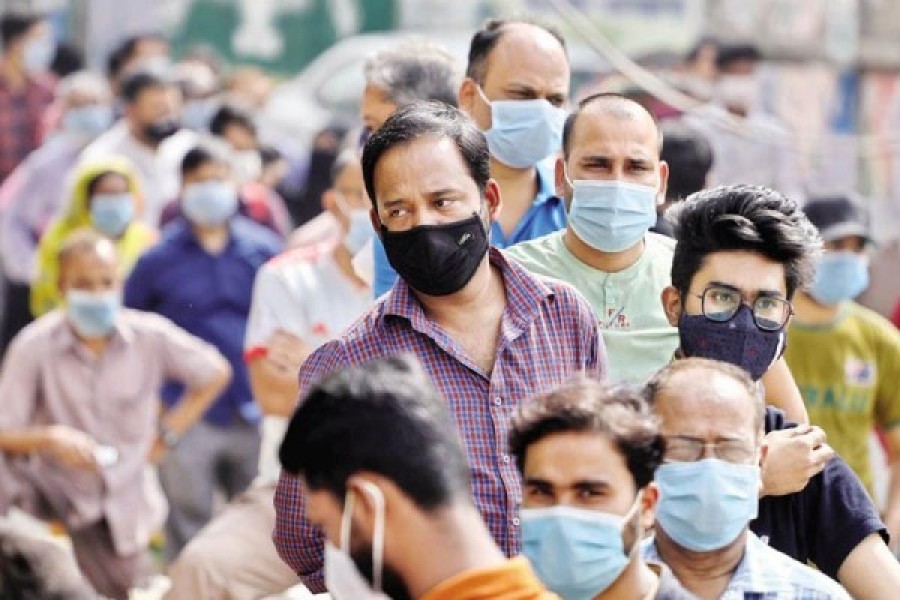The current wave of the surge in coronavirus infections, most likely second, has reversed the mood of growing optimism which started coming to people's mind with the arrival of the vaccines in the country.
A year has gone by already with children spending idle time at home. Juveniles and youths were hoping against hope to complete their courses and join the market as workforce but to no avail. If the past year was unexpected to them all, one more year at the very least doesn't seem to be promising either. Families are mostly depressed.
As we are yet to become a welfare country where taxpayers are provided with financial supports during tough times, people's resilience shown time and again is turning feeble now.
After one year's battle with available resources and morale, it's now hard to keep oneself optimistic since no one can predict when the world would be free from the Covid-19. The mankind has seen perhaps the most sophisticated scientific endeavours in history, if not fully coordinated by powerful nations, to overcome the pandemic only to feel helpless and somewhat flabbergasted till date.
A peculiarity of this disaster is that economic recovery is being discussed and planned well before the pandemic is over. While the fear of disease and death haunts many, a sense of economic uncertainty is no less prevalent.
In that context, the calamity of Covid-19 outbreak in 2020 has become a protracted war of peoples around the world against an unseen enemy - a virus - which is causing both visible and invisible losses. That's why, nations have announced stimulus packages to face the crisis, help people overcome its effects and plan a so-called sustainable future.
That still may be like unpredictability of the pandemic itself. It's only human that people want to make a forecast and intelligent and courageous people prepare for the unknown.
Even if you are a pessimist, you have to live with a positive frame of mind for the sake of living, meeting the needs or satisfy the ego.
Time has come for Bangladesh to make fresh analysis of the situation because public mood has swung towards the territory of frustration that no one can deny.
It's the responsibility of the policymakers, social leaders, teachers and researchers to take stock of the pains and hopes people have about their lives. Emergency tasks like relief operations, healthcare supports and addressing current business challenges are unavoidable but making and keeping people optimistic about life and future is not any negligible task either.
It's now proven that the system of going to office, schools, factories and other workplaces maintaining 9am-5pm discipline has simply collapsed in the past one year. The gathering we love has become a dangerous practice for us.
The virtual space has replaced the real ones to paint a business as usual scenario. Costs and benefits of living and working at home and the cumulative effects of the pandemic on the psyche of an entire generation are yet to be assessed but people do already miss human touch.
Crisis always brings some changes leaving scope to institutionalise those changes that are otherwise impossible. We in Bangladesh often fail to carry out routine assignments whereas Bangladeshis are famous for acting brilliantly in times of emergencies.
In the post-pandemic situation, we may need to raise the morale of many traumatised people and millions of disturbed children, juveniles and youths to find a new world for them. Institutions would need to be overhauled and culture redefined to accommodate new realities, necessities and aspirations of the people.


